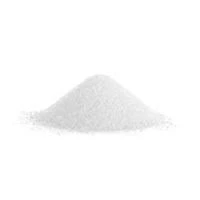
Kieserite Fertilizer Benefits for Optimal Plant Growth and Soil Health
Kieserite Fertilizer An Overview
Kieserite, also known as magnesium sulfate monohydrate, is a naturally occurring mineral that has gained popularity as a specialized fertilizer in agricultural practices. Its significance lies in its rich magnesium content, which is crucial for plant growth and development. This article delves into the properties, benefits, and applications of kieserite fertilizer, as well as its role in sustainable agriculture.
Chemical Composition
Kieserite's chemical formula is MgSO₄·H₂O, which indicates that it consists of magnesium sulfate combined with one molecule of water. This mineral can be found in evaporite deposits, formed in coastal areas or regions where large bodies of water have evaporated over time. The mineral's high solubility makes it an effective option for delivering essential nutrients to crops, ensuring that plants can absorb magnesium efficiently.
Importance of Magnesium in Agriculture
Magnesium is a vital macronutrient that plays several key roles in plant biology. It is central to chlorophyll production, which is essential for photosynthesis—the process by which plants convert sunlight into energy. Additionally, magnesium is involved in enzyme activation, contributing to various biochemical reactions essential for plant growth.
Deficiencies in magnesium can lead to a range of symptoms, including interveinal chlorosis (yellowing between leaf veins), poor fruit and seed development, and reduced overall plant vigor. By incorporating kieserite fertilizer into agricultural practices, farmers can effectively address these deficiencies, leading to healthier and more productive crops.
Benefits of Kieserite Fertilizer
1. Enhanced Nutrient Availability Kieserite improves the availability of essential nutrients in the soil. It provides both magnesium and sulfur, another vital nutrient, which aids in protein synthesis and enzyme function.
2. Improved Soil Structure The application of kieserite can enhance soil structure, leading to improved aeration and water retention. This is particularly beneficial in sandy soils that may struggle to retain moisture and nutrients.
kieserite fertilizer

3. Versatile Application Kieserite can be used in various agricultural systems, including conventional and organic farming. It can be applied directly to the soil, mixed with other fertilizers, or incorporated into foliar sprays for immediate uptake.
4. Sustainable Crop Production As agriculture increasingly focuses on sustainability, kieserite serves as an environmentally friendly alternative to synthetic fertilizers. Its natural origins and efficiency in nutrient delivery align with sustainable practices aimed at minimizing environmental impact.
Application Methods
Kieserite can be applied in several ways, depending on the crop type and the specific nutrient needs. Some common application methods include
- Soil Application This involves broadcasting kieserite onto the soil surface before planting or during the growing season. It can be incorporated into the soil to aid absorption.
- Foliar Sprays For quick nutrient uptake, especially in cases of identified deficiencies, kieserite can be dissolved in water and applied directly to the leaves of crops.
- Fertigation This method involves integrating kieserite into irrigation systems, allowing for consistent delivery of magnesium and sulfur to the roots as plants absorb water.
Conclusion
Kieserite fertilizer represents a significant advancement for farmers looking to enhance crop productivity and quality. Its rich magnesium content and additional benefits, such as improved soil structure and sustainability, make it a valuable ally in modern agricultural practices. As farmers continue to seek solutions that foster both productive and environmentally conscious practices, kieserite stands out as a reliable choice. By incorporating this natural mineral into their nutrient management strategies, farmers can ensure their crops thrive, ultimately leading to improved food security and agricultural resilience.
In summary, kieserite fertilizer not only addresses essential nutrient deficiencies but also promotes sustainable agricultural practices, aligning with the ongoing shifts towards ecological responsibility in farming. As the demand for efficient and eco-friendly fertilizers grows, kieserite will likely play an increasingly vital role in the future of agriculture.
-
Aluminum Hydroxide: Quality Gels & Dried Gel AntacidNewsAug.31,2025
-
Buy High-Quality Trichloroisocyanuric Acid for Sale | TCCA 90% SupplierNewsAug.30,2025
-
Pure Sodium Dichloroisocyanurate Dihydrate | Powerful DisinfectantNewsAug.29,2025
-
Industrial Chemicals: Quality & Purity for Every IndustryNewsAug.28,2025
-
Nitrile Rubber Honoring Strict Production StandardsNewsAug.22,2025
-
Aspartame Ingredients Honoring Food Safety ValuesNewsAug.22,2025
-
Fertilizer for Balanced Plant NutritionNewsAug.22,2025
Hebei Tenger Chemical Technology Co., Ltd. focuses on the chemical industry and is committed to the export service of chemical raw materials.
-

view more DiethanolisopropanolamineIn the ever-growing field of chemical solutions, diethanolisopropanolamine (DEIPA) stands out as a versatile and important compound. Due to its unique chemical structure and properties, DEIPA is of interest to various industries including construction, personal care, and agriculture. -

view more TriisopropanolamineTriisopropanolamine (TIPA) alkanol amine substance, is a kind of alcohol amine compound with amino and alcohol hydroxyl, and because of its molecules contains both amino and hydroxyl. -

view more Tetramethyl Thiuram DisulfideTetramethyl thiuram disulfide, also known as TMTD, is a white to light-yellow powder with a distinct sulfur-like odor. It is soluble in organic solvents such as benzene, acetone, and ethyl acetate, making it highly versatile for use in different formulations. TMTD is known for its excellent vulcanization acceleration properties, which makes it a key ingredient in the production of rubber products. Additionally, it acts as an effective fungicide and bactericide, making it valuable in agricultural applications. Its high purity and stability ensure consistent performance, making it a preferred choice for manufacturers across various industries.





